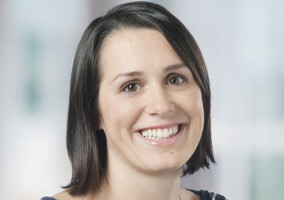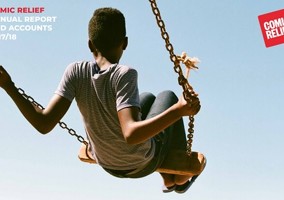Comic Relief’s latest set of annual accounts show that it distributed £75m in 2018-19, the first full year operating under a new funding strategy.
Its latest set of accounts, for the year to July 2019, show the overwhelming majority of the spending – 86% – was focused on its new strategic goals. These are: global mental health work, gender justice, safe and secure homes, and looking after children’s health.
Comic Relief raised £70m across the year’s events, which included Red Nose Day 2019 as well as a high-profile comedy night at Wembley Stadium. This is down from £86m raised in 2016-17, when Red Nose Day was last held.
Sixty per cent of the funding was spent overseas and 40% in the UK, although Comic Relief says that it aims to achieve a fifty-fifty split in future years.
The accounts also note a strategic shift towards “fewer, larger investments”, with the median average investment size increasing by £30,000 compared with the previous twelve months.
This was the first year that Comic Relief trialled contactless donations, although no figures are given for the amount raised.
Fraud
Comic Relief’s Counter Fraud Team is trying to recover more than £1m lost to suspected fraud by organisations which received its funding, according to the accounts.
The charity says that seven cases of possible fraud were open as of July 2019. It has been able to recover £82,000 so far, and says that efforts to recover the remaining funds are ongoing.
A Comic Relief spokesperson told Civil Society News: "Comic Relief takes a zero-tolerance approach to corruption and fraud and if we have any concerns we investigate, stop funding, and seek to recover any funds already distributed immediately.
"Due to our robust grants assessments we have been able to identify a million in funding for projects that haven’t matched our high standards and as such we are in the process of recalling these funds."
Complaints
The charity received 594 complaints regarding fundraising throughout the Red Nose Day 2019 campaign. It does not provide details of these complaints but says that none were referred to the Fundraising Regulator.
Finances and investments
Comic Relief spent £13.7m on staff costs, as well as additional redundancy costs of £39,000. Five members of staff earned more than £100,000 and the chief executive received £200,000, consisting of £176,000 salary and back payments totalling £24,000.
The accounts say that the charity saved £500,000 through automating backroom tasks, and another £250,000 by moving its donations platform in-house.
Its investment portfolio is worth just over £130m, and gains on that portfolio cover operational costs including staff salaries, office rent and fundraising costs.
Comic Relief says it has not invested in fossil fuel extraction companies since 2017, and last September it announced that this was now charity policy, as part of a wider ethical investment policy. The charity was heavily criticised in 2013 when it emerged its investments had included arms manufactures and tobacco companies.
Changes to fundraising appeals
Comic Relief was also caught up in a row in early 2019 about the way it presented its work, when Labour MP David Lammy accused the charity of using “tired and unhelpful stereotypes” and “white saviour” narratives when celebrities visit its projects overseas.
Addressing the charity’s public profile, Liz Warner, then chief executive, writes in the report: “We’ve been making changes to the way we make our appeal films. The changes started before Red Nose Day 2019, and we’re continuing to shift the tone and approach ahead of Sport Relief 2020.
“This change brings its own challenges, but we’re committed to telling stories to better represent the work we fund. We’re still listening and learning but, so far, the response to the changes we’ve made has been good.”
Warner announced her plans to leave Comic Relief in May 2019, and was replaced as chief executive in November by Alex Reid. Reid left her role after three weeks, so that she could be with her family in the United States during the coronavirus pandemic, and Ruth Davison is now acting chief executive while the charity's trustees seek a permanent replacement.
Comic Relief placed their annual report and accounts online in December last year, and filed them with Companies House earlier this week. It is co-hosting The Big Night In on BBC1 tomorrow evening, to raise funds and help charities address the impact of Covid-19.
The latest set of accounts were filed with Companies House this week, but have been available on its website for some time.
Related articles












